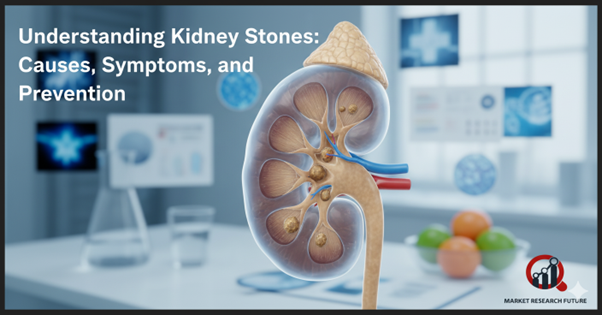The complete overview of kidney stone and their causes
Understanding Kidney Stones: Causes, Symptoms, and Prevention

A Look at Kidney Stones
Mineral deposits that are hard and form inside the kidneys are called kidney stones. These stones, which are usually made of minerals and salts, can block the urinary tract and cause a lot of pain. It is best to pass the stone naturally through urine, but sometimes surgery or medical help is needed. Kidney stones can hurt kidney function and overall urinary health if they aren't treated.
What Makes Kidney Stones Happen?
Even though the exact cause isn't always clear, there are a few things that make kidney stones more likely to happen:
Toxic Elements: Stones can form when there are too many oxalate, uric acid, and other chemicals in the body.
Lifestyle Factors: Not drinking enough water, eating bad foods, not getting enough sleep, and being inactive can all make things worse.
Medical History: Having had kidney stones before, taking certain medicines, or having surgery may make you more likely to get them again.
Typical Signs
You might not notice kidney stones until they move into the ureter. Some of the most important signs are:
- Pain that is sharp or changes in the back, sides, groin, or lower abdomen.
- Feeling pain or burning while peeing.
- Urine that is dark, cloudy, or foamy may have blood in it.
- Frequent urination, nausea, vomiting, fever, or chills in very bad cases.
When to Get Medical Help
If you have any of the following, see a doctor:
- Pain that is very bad or doesn't go away and makes it hard to go about your daily life.
- Pain that comes with vomiting, fever, or chills.
- Having trouble urinating or blood in your urine.
Who is in danger?
- Family History: Kidney stones can run in families.
- Diet Choices: Too much sugar, protein, and salt can make calcium deposits worse
- Medical Factors: Some drugs and surgeries from the past can increase the risk.
Final Thoughts
Kidney stones are common, but you can deal with them if you take care of yourself. To keep your kidneys healthy and stop them from forming, drink plenty of water, eat a balanced diet, and keep an eye on your risk factors.

Leave a Comment